Featured Images
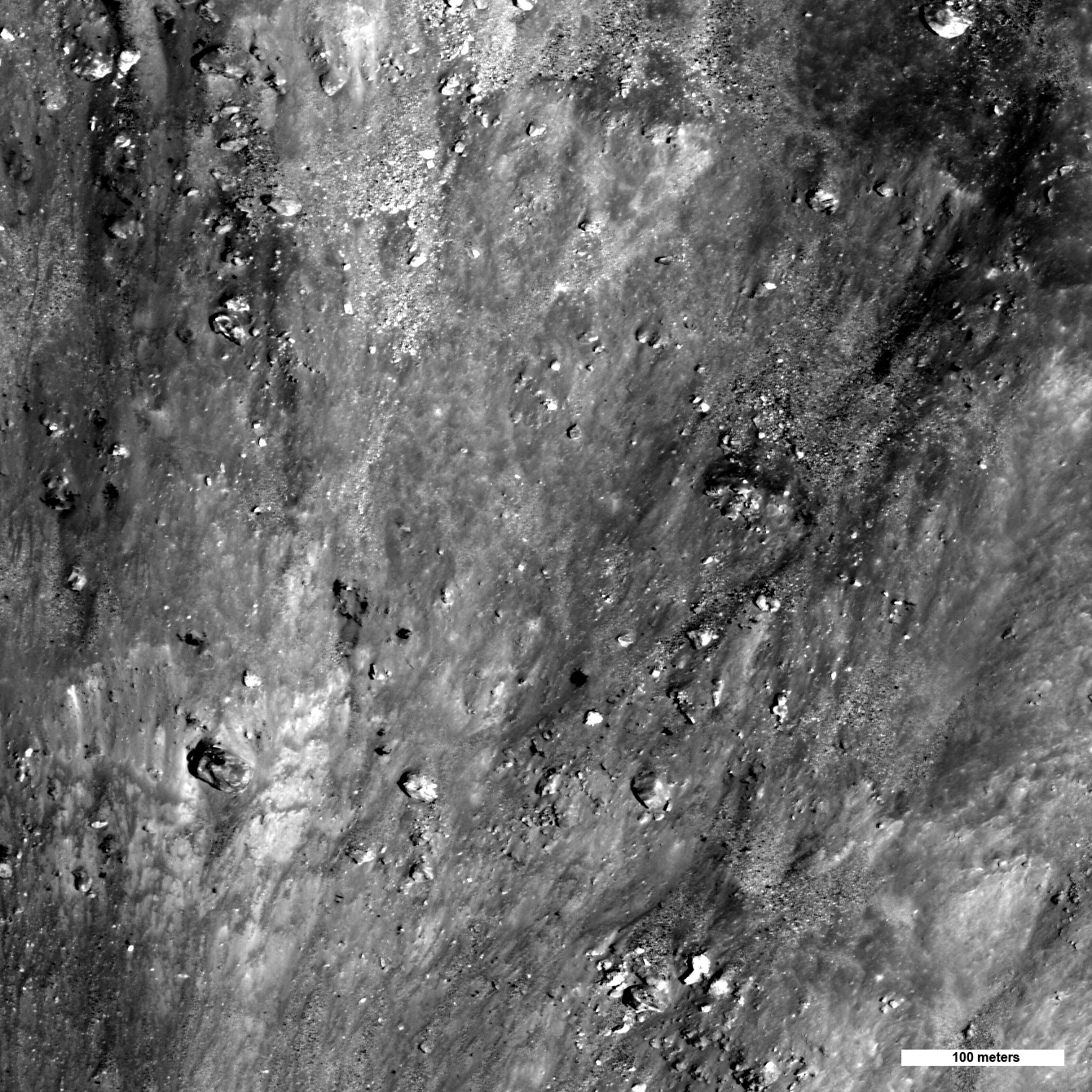
In an instant!
Boulders and impact melt on the interior wall of a recent 5 km (3 mile) diameter crater. The rim of the crater is near the top of the image, downhill is towards the bottom of the image [NASA/GSFC/Arizona State University].
Published on 12 May 2010
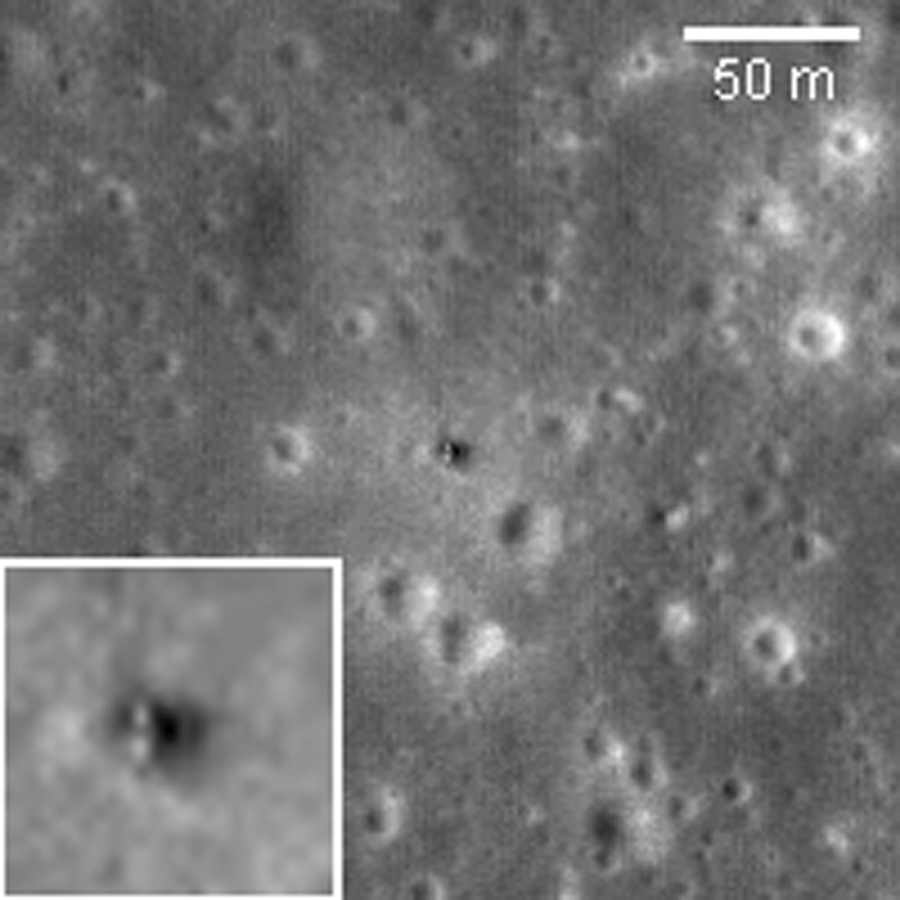
Luna 16
Soviet Luna 16 descent stage -- the first successful robotic lunar sample return spacecraft (NASA/GSFC/Arizona State University).
Published on 25 Mar 2010
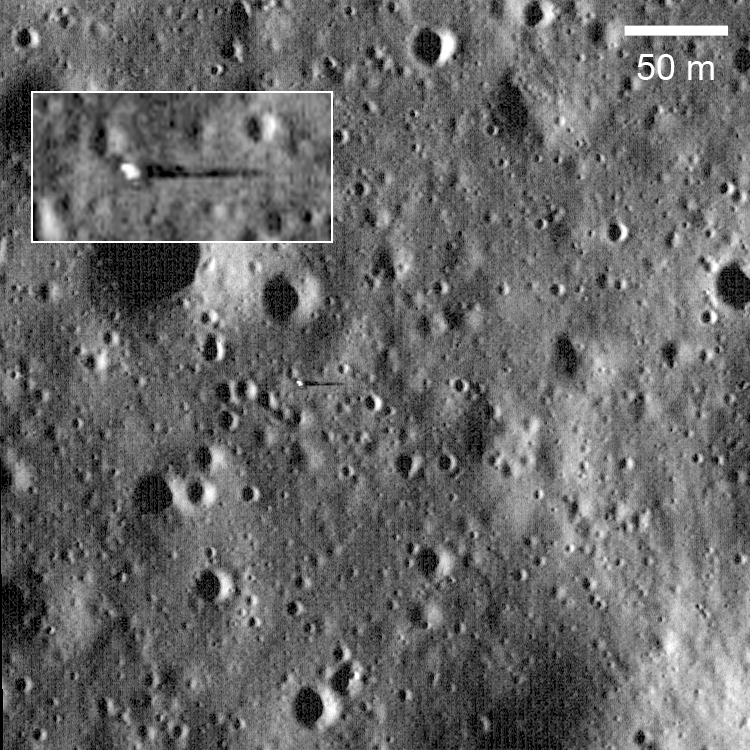
Surveyor 6 on the plains of Sinus Medii
Surveyor 6 casting 18-meter long shadow with Sun just 8° above the horizon, LROC NAC image M117501284L [NASA/GSFC/Arizona State University].
Published on 21 Mar 2010
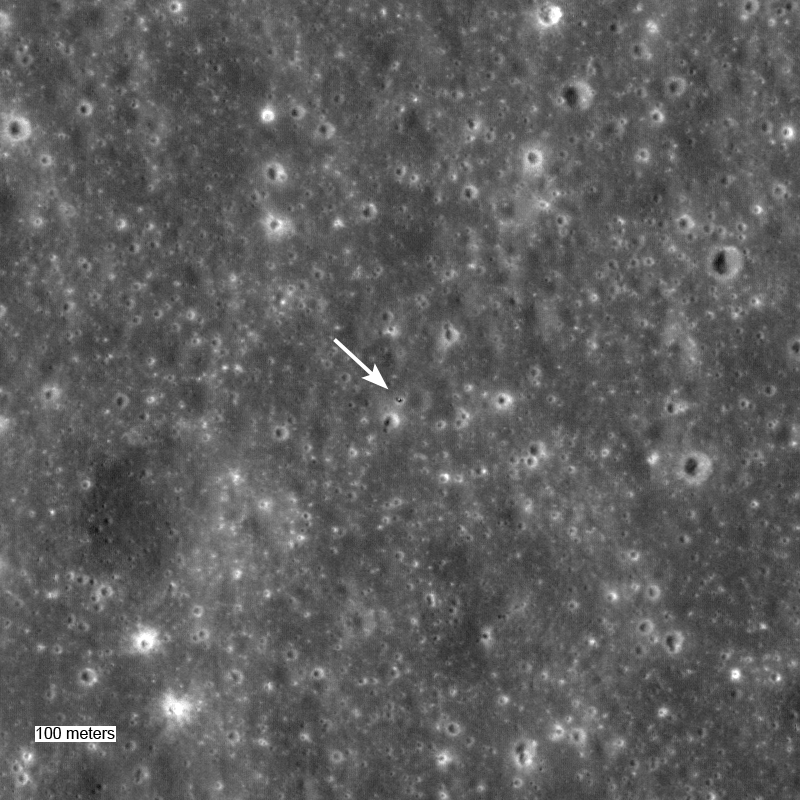
Surveyor 5: A hole-in-one
Surveyor 5 sitting in a 10 meter diameter crater, LROC NAC image M106726943LE, width ~960 meters [NASA/GSFC/Arizona State University].
Published on 21 Mar 2010
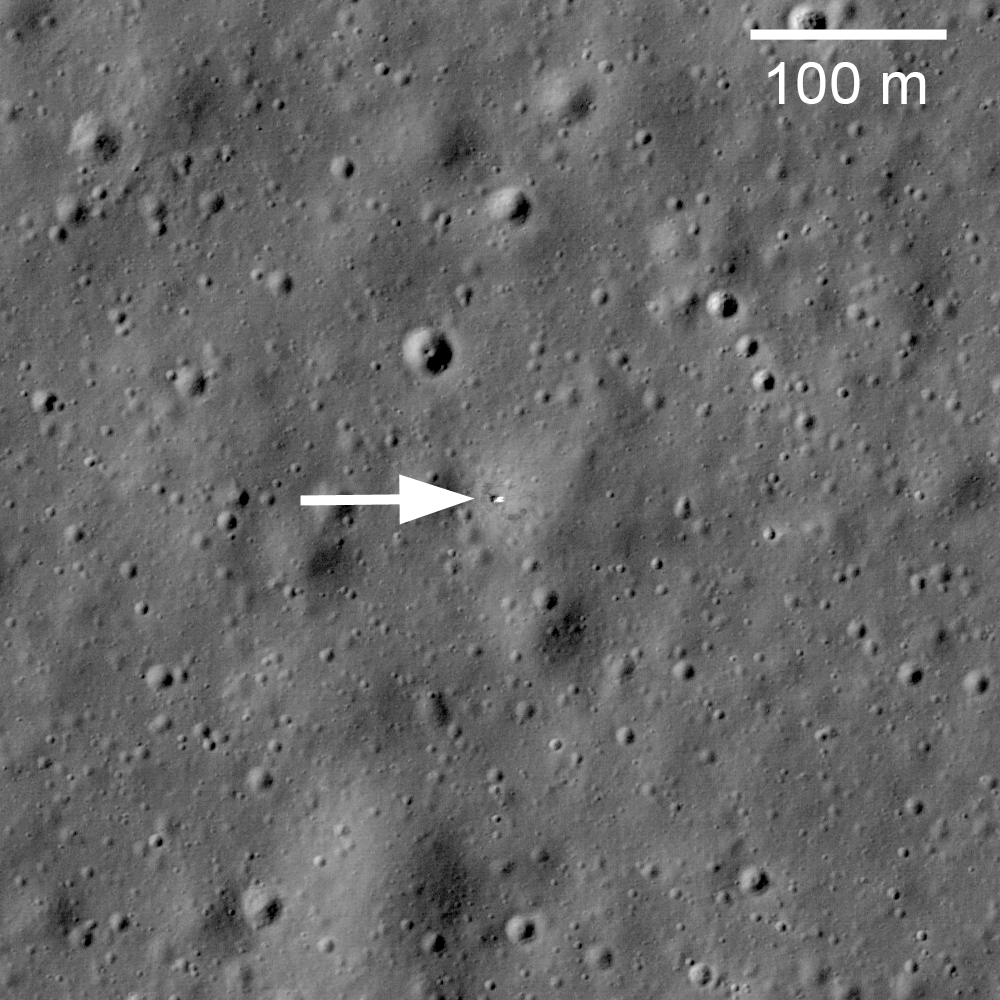
Soviet Union Lunar Rovers
Soviet robotic lander Luna 17 still sitting on Mare Imbrium where it delivered the Lunokhod 1 Rover in November 1970, LROC NAC Image M114185541RE [NASA/GSFC/Arizona State University].
Published on 17 Mar 2010
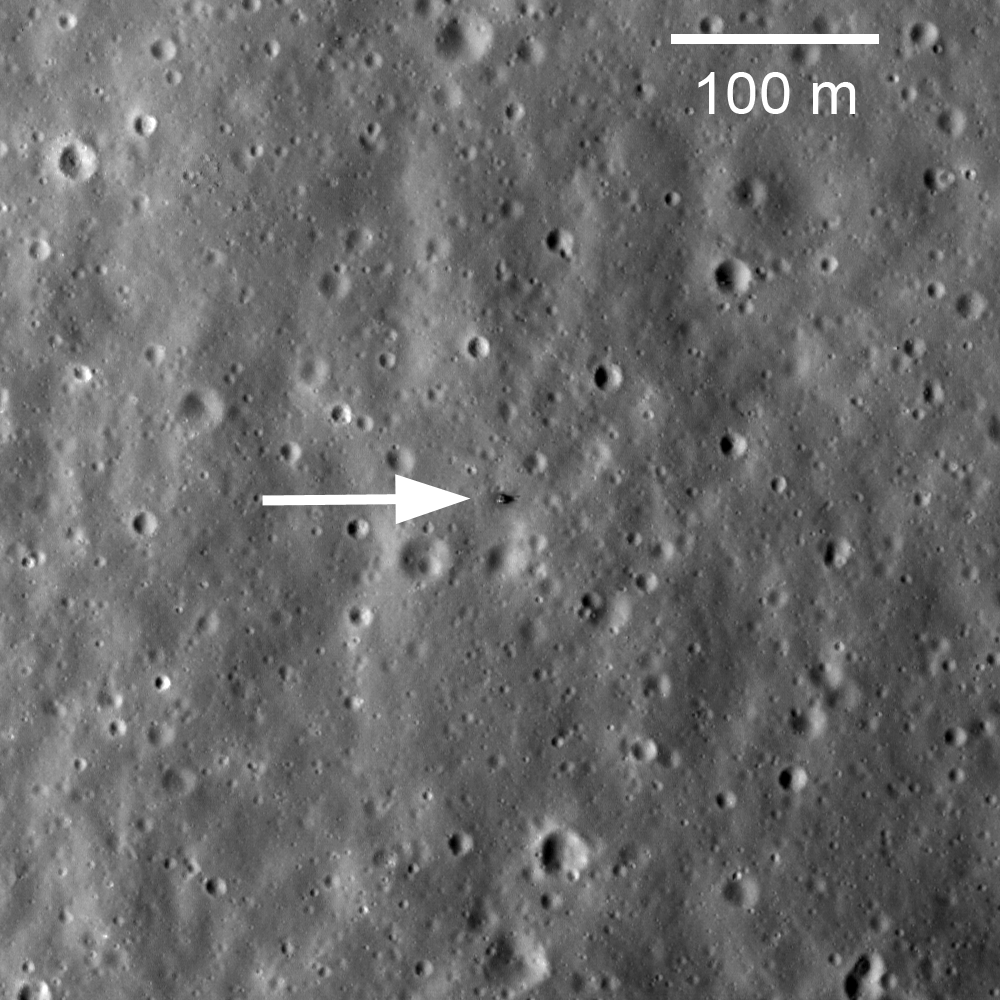
Soviet Union Lunar Sample Return Missions
On February 21, 1972, Luna 20 soft landed in the rugged highlands between Mare Fecunditatis and Mare Crisium. The next day a sample return capsule blasted off carrying 55 grams of lunar soil. The Luna 20 descent stage still sits...
Published on 15 Mar 2010
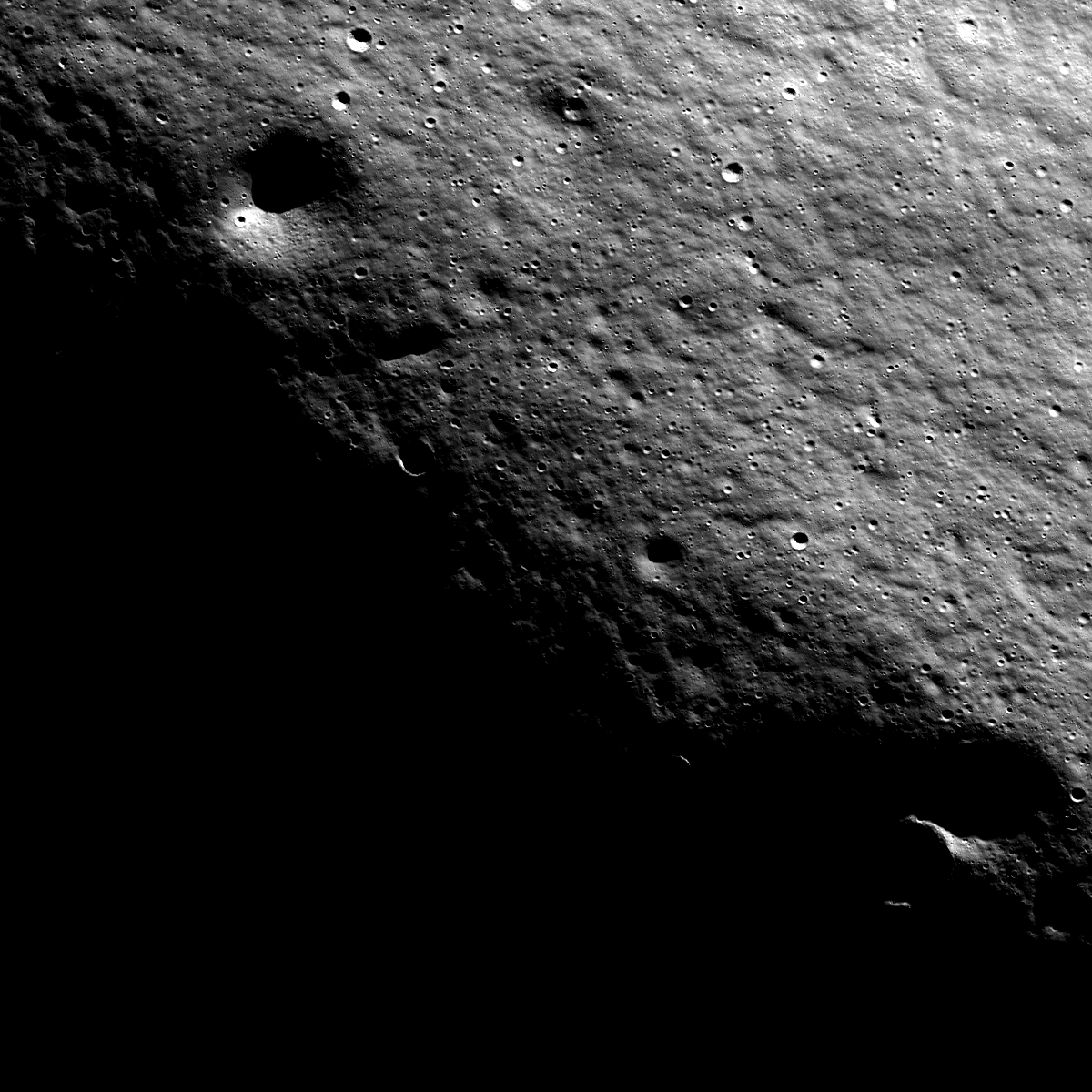
Near the Summit of Malapert Mountain
The lunar highlands exhibit rhythmic patterns thought to result from slow, downslope creep of the loose regolith (soil). These subtle patterns are most easily seen when the Sun is low to the horizon. Image is 2400 meters wide, north is...
Published on 22 Feb 2010
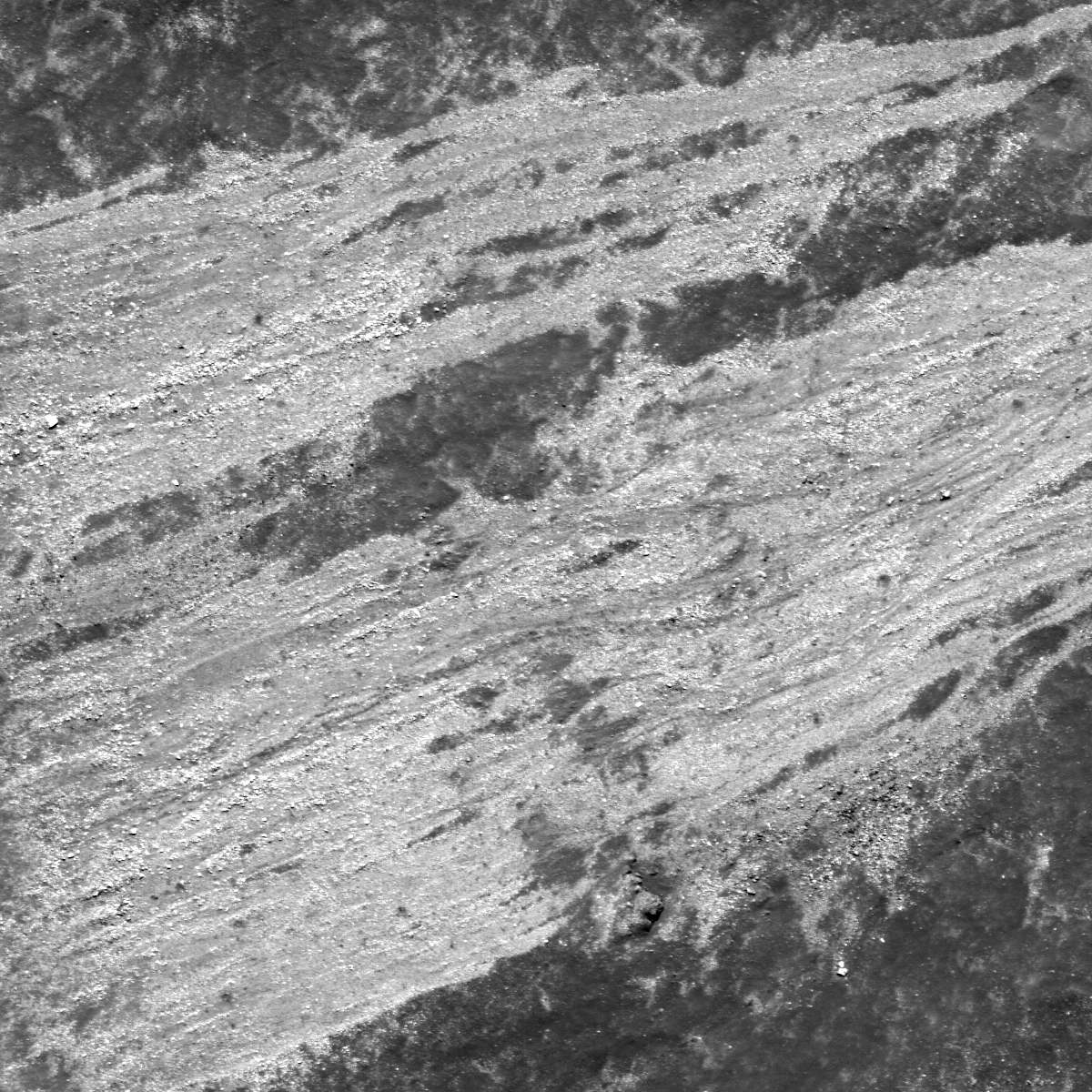
Moon or Abstract Expressionism?
Seeing small areas of the Moon at 50 cm per pixel often presents unexpected views, and sometimes it is hard to interpret the geology at first glance, much less what is up and what is down! What are the white streaks? How did they get...
Published on 22 Dec 2009
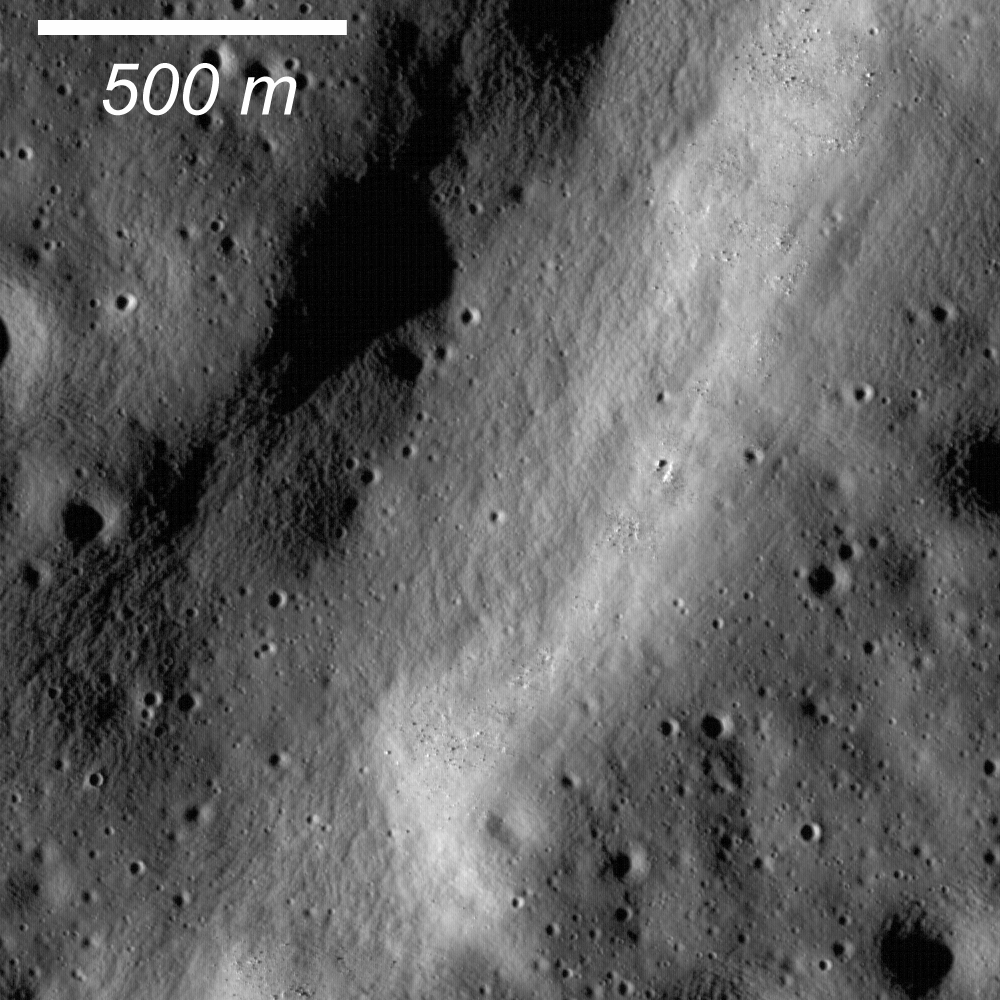
Pull Apart - Grabens
Graben are common extensional features on the Moon as well as the other terrestrial planets and icy satellites. This graben (700 m wide) formed within a larger graben (1700 m). Illumination is the from the left (NASA/GSFC/Arizona State...
Published on 16 Dec 2009
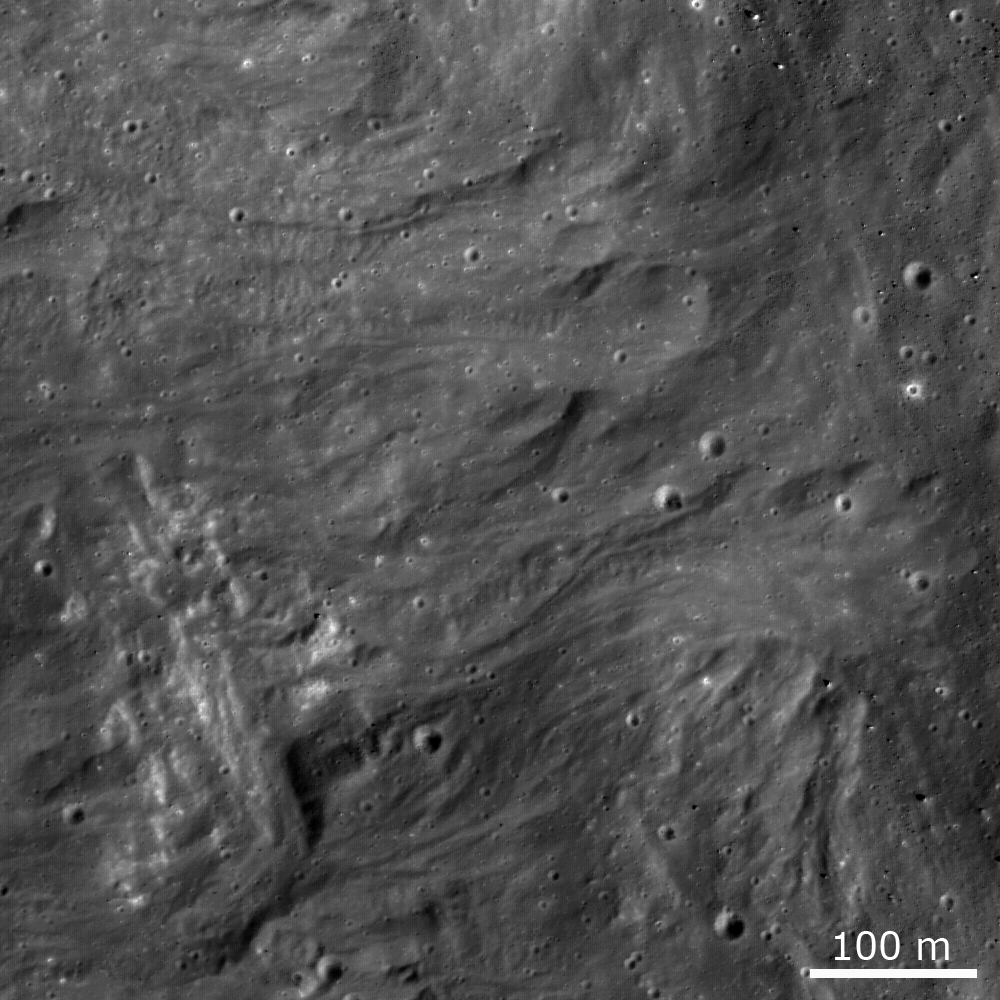
Impact Melt Flows on Giordano Bruno
Frozen impact melt flows on the ejecta blanket of the young impact crater Giordano Bruno (22 km diameter). The image is about 600 m across and the flows are about 50-100 m wide (NASA/GSFC/Arizona State University).
Published on 15 Dec 2009
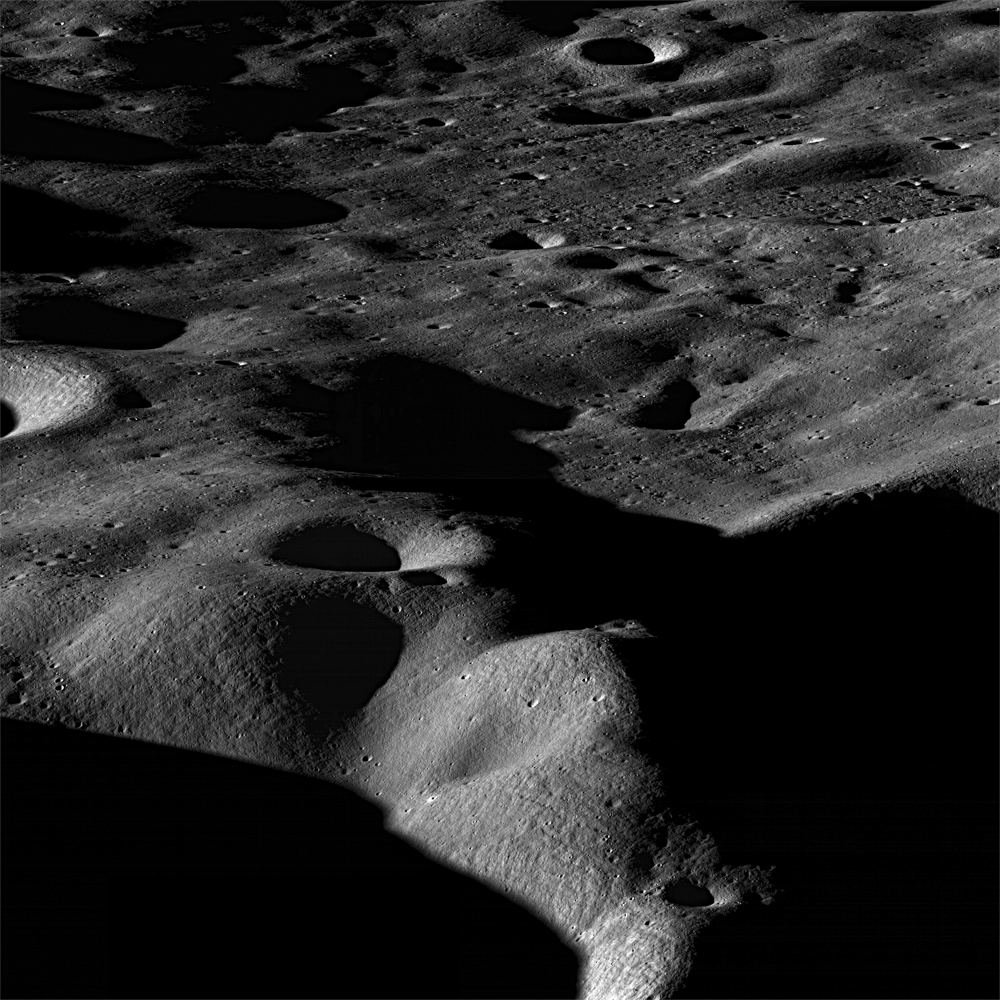
Mountains of the Moon
Most mountains on the Earth are formed as plates collide and the crust buckles. Not so for the Moon, where mountains are formed as a result of impacts. Images taken looking across the landscape rather than straight down really bring out...
Published on 17 Nov 2009
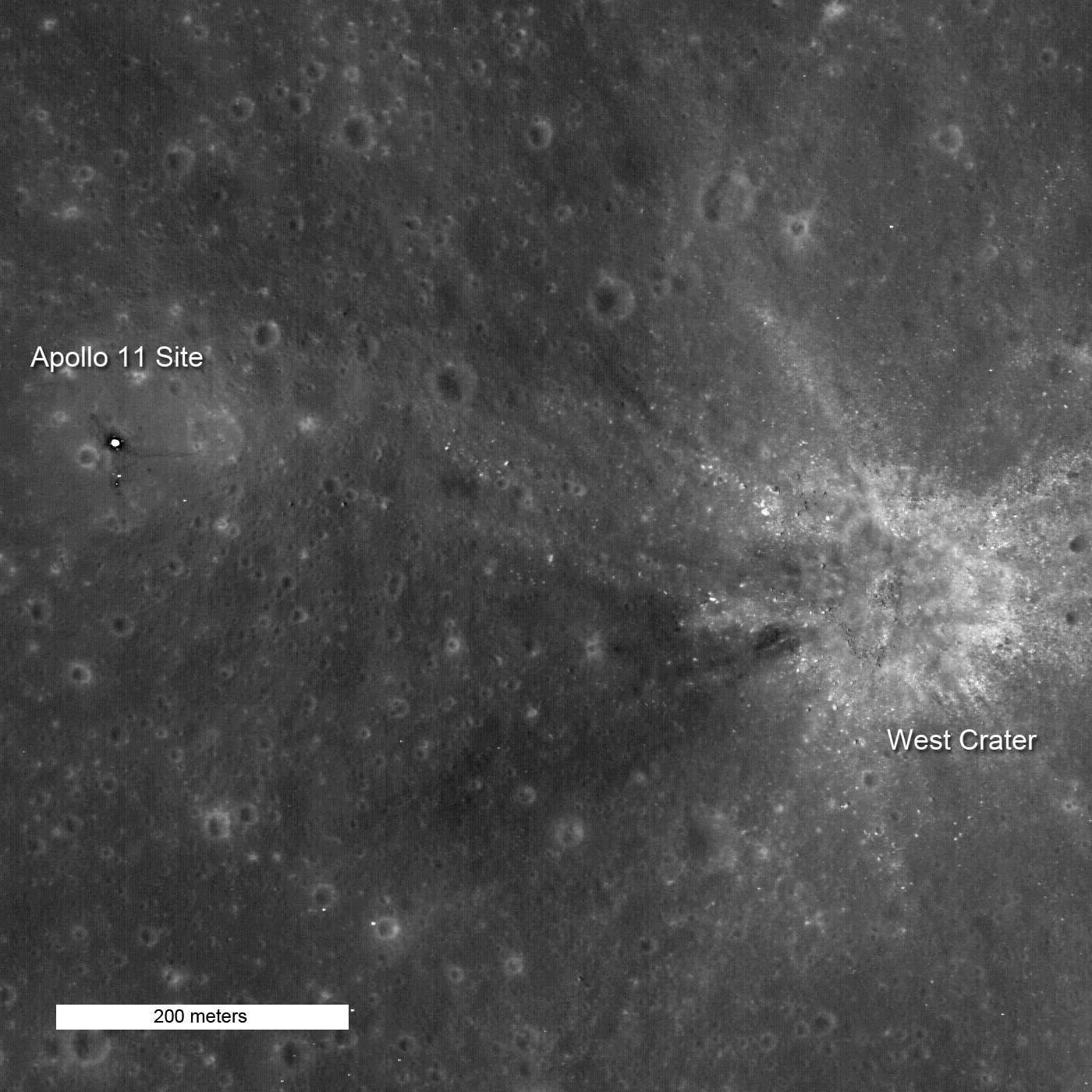
High Noon at Tranquility Base
As the Apollo 11 Lunar Module (LM) neared the surface, Neil Armstrong could see the landing area was right on the rough bouldery ejecta of West crater. He had to change the flight plan and fly the LM westward to find a safe landing...
Published on 09 Nov 2009
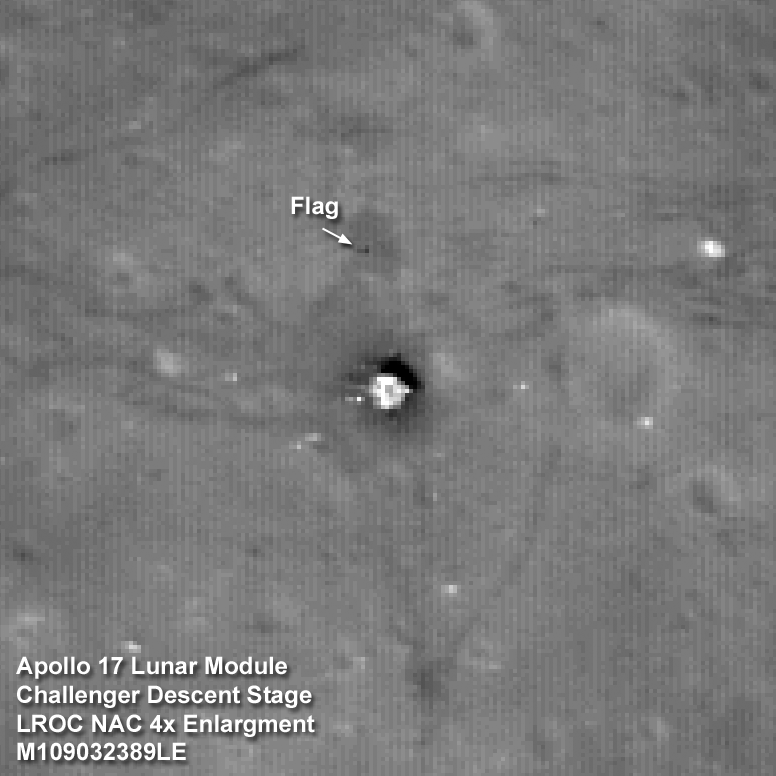
Exploring the Apollo 17 Site
The Apollo 17 Lunar Module Challenger descent stage comes into focus from the new lower 50-km mapping orbit, image width is 102 meters [NASA/GSFC/Arizona State University].
Published on 28 Oct 2009

Apollo 14 S-IVB Impact Crater
Crater (center of image) formed by impact of the Apollo 14 Saturn IVB booster. The booster was intentionally impacted into the lunar surface on February 4, 1971 to serve as an energy source to probe the interior structure of the Moon...
Published on 08 Oct 2009
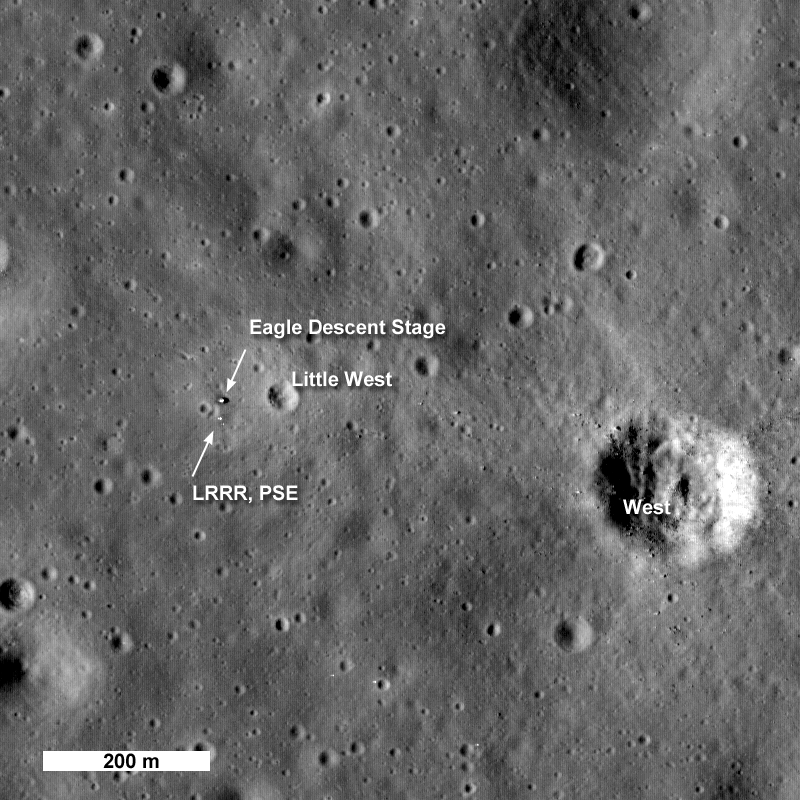
Apollo 11: Second look
LROC's second look at the Apollo 11 Landing Site [NASA/GSFC/Arizona State University].
Published on 29 Sep 2009
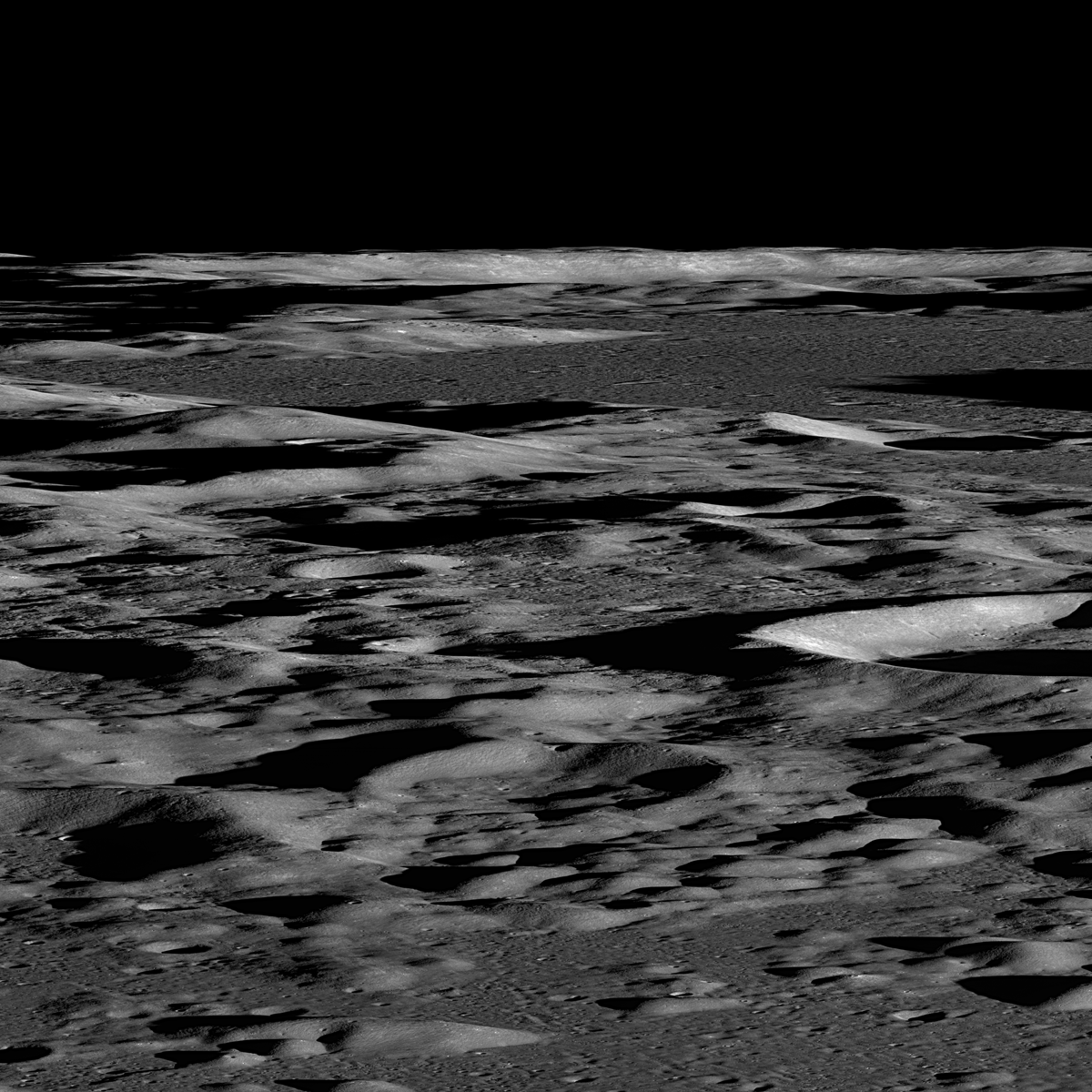
Commissioning Sequences Pave the Way
Several LROC NAC sequences were acquired looking across the illuminated limb to quantify scattered light. Not only were these excellent engineering test images but they also presented spectacular oblique views across the lunar surface...
Published on 21 Sep 2009
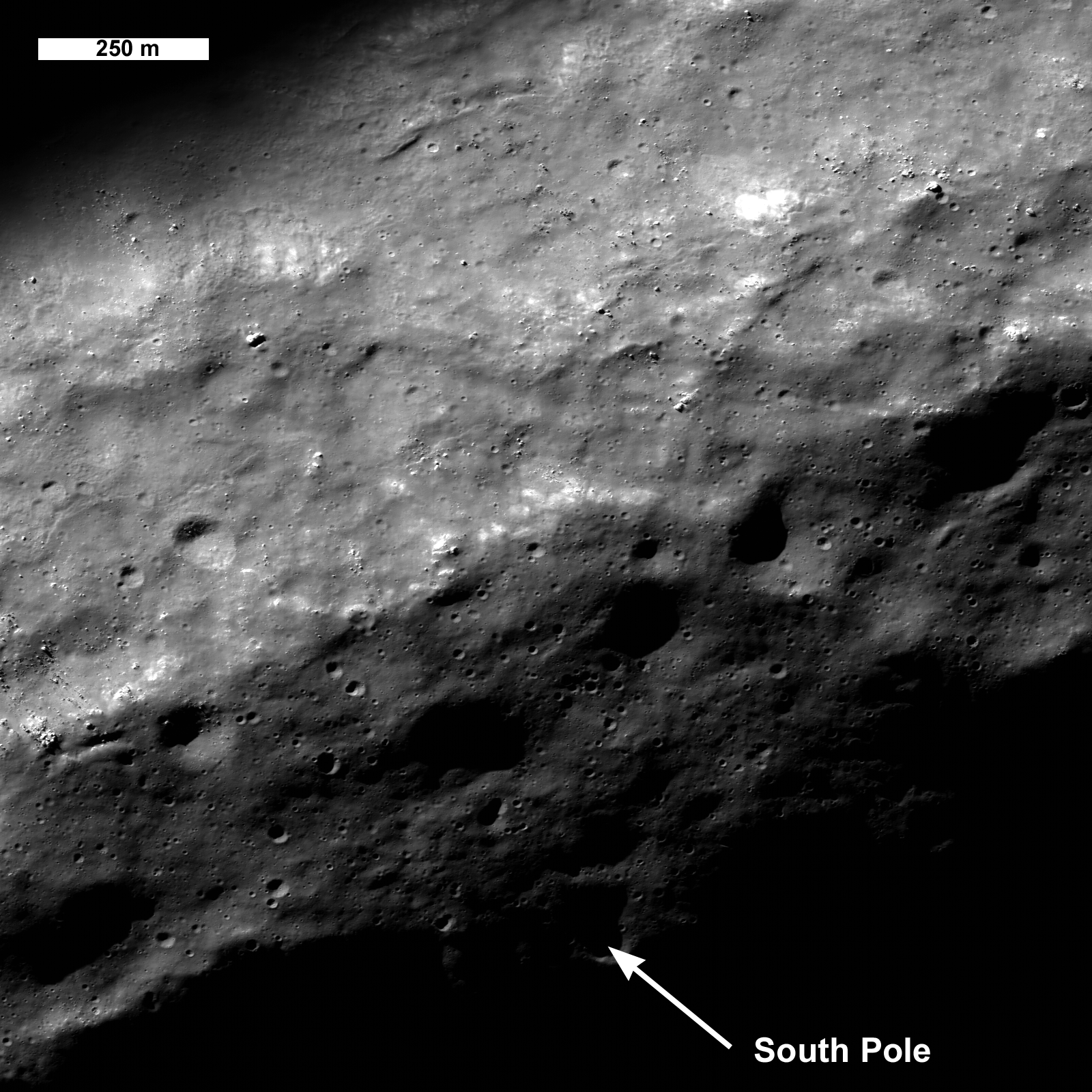
Lunar South Pole - Out of the Shadows
As the Moon heads into southern summer the region around the south pole is better seen by LROC. One of the many goals of the LRO mission is to improve our cartographic knowledge of the Moon. The location of the pole shown here (image...
Published on 17 Sep 2009

First Look: Apollo 12 and Surveyor 3
First look at Apollo 12 landing site, the Lunar Module descent stage, Experiment package (ALSEP) and Surveyor 3 spacecraft are all visible along with astronaut tracks (unmarked arrows). Image is 824 meters wide, north up...
Published on 03 Sep 2009
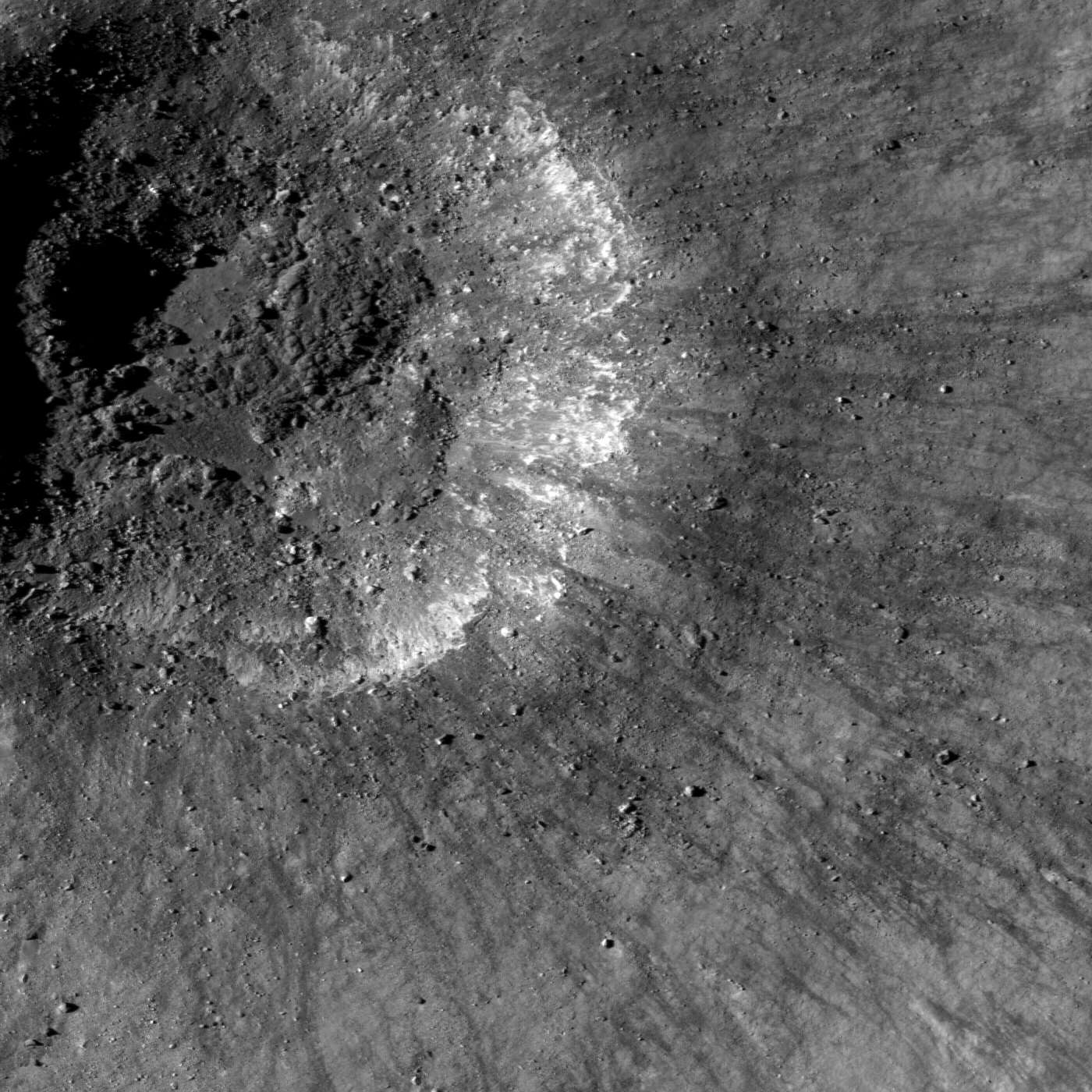
Recent impact!
Very young impact crater in Balmer basin. The dark streamers are impact melt splashes thrown out during the crater formation, image 1302 meters wide [NASA/GSFC/Arizona State University].
Published on 31 Aug 2009
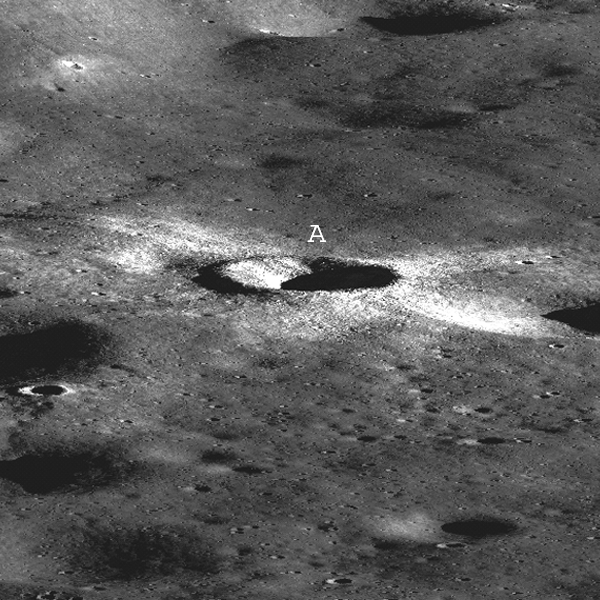
First LROC Stereo Results
Synthetic perspective view looking south from the Apollo 16 landing area, topography is rendered naturally (no vertical exaggeration) [NASA/GSFC/Ohio State University].
Published on 25 Aug 2009